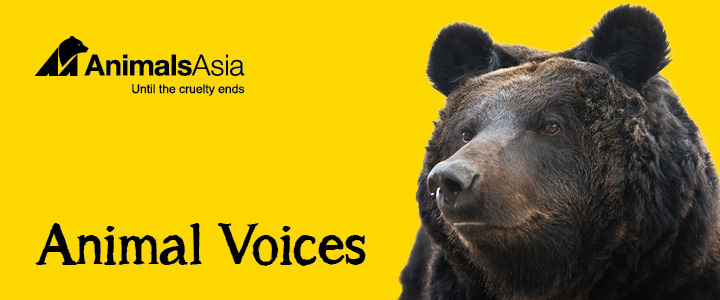Chimpanzees on film: that’s not a smile, it’s a grimace
09 February 2018
How decades of exploitation in movies has misled the public to think primates make great entertainers – in reality they are endangered wild animals.
By Animals Asia’s Brooke Aldrich
If you have enjoyed a night out at the cinema in the past few years, you might have seen chimpanzees and capuchin monkeys starring in films such as “The Wolf of Wall Street”, “The Hangover Part II”, and “Night at the Museum”.
Some moviegoers might be amused by the antics of these “cute” primates but animal lovers will be horrified, knowing they have been dressed up, infantilised and forced to adopt unnatural behaviours take after take, scene after scene.
Unlike humans hungry for fame, capuchins and chimpanzees don’t dream of cracking Hollywood. To them, acting can mean only one thing: appalling cruelty.
This often starts early on in their lives. Many of the primates forced to perform in films and television or in zoos and circuses are torn from their mothers as infants – because their helplessness makes it easier for trainers to manipulate them.

At the end of their so-called careers, when they have grown too old for showbiz, too physically strong to be controlled, these “actors” are often abandoned in squalid facilities to live out the rest of their days in a cage – deprived of any social interaction – or even euthanised.
Yet to watch primate “actors” on the silver screen you would never guess the extent of their suffering.
Part of the reason why, as my recent research suggested, is that chimpanzees are often seen “smiling” in movies. A smile is one the purest expressions of joy in humans but in most primates, it’s actually a grimace, often indicating fear and distress.
It’s quite possible therefore that chimpanzees who smile or grin on film have been trained to show fear on demand.

Exploited and endangered
When I analysed two decades of English-language film trailers featuring “primate actors”, I found that monkeys and apes were shown performing human actions, such as brushing their teeth, the vast majority of the time. Sadly, this only reinforces the profound misunderstanding humans have of these magnificent animals.
In our haste to imbue animals with human attributes and behaviours, we do great damage to them. By misrepresenting primates such as chimpanzees and refusing to take them on their own terms, we strip them of their dignity and we diminish everything that makes them a unique species.
Even more worryingly, the continued use of primates in Hollywood blockbusters, television shows and commercials feeds a common misconception among the public that many primates are not endangered animals.

In fact, a full 60% of primate species are now threatened with extinction. Chimpanzees have been listed as endangered by the International Union for the Conservation of Nature (IUCN) since 1996 with wild populations under constant threat of poaching and losing more of their natural habitat due to logging, mining and agricultural interests.
In contrast to chimpanzees and capuchin monkeys, the use of orangutans in feature films has fallen in the last few decades which suggests their listing under the U.S. Endangered Species Act has made them harder to source since the listing came into effect in 1970.
However, captive chimpanzees were only listed as endangered in the United States, the biggest market for English-language films, in 2015.
It was a welcome, if not belated, step in the right direction.

But to make a real difference, the entertainment industry in the United States and beyond must stop treating primates as commodities to be exploited, and start seeing them as living, breathing creatures who experience pain, fear and stress.
If they don’t, then there is a real danger the entertainment industry will simply replace the now difficult to source chimpanzees with capuchins – just as they moved on from orangutans in the 70s.
If you haven’t already, you can help make their voices heard by signing our “No Voice, No Choice” petition. Together we can let film directors, zoo managers and circus owners know animal performance cruelty is never acceptable.

BACK





